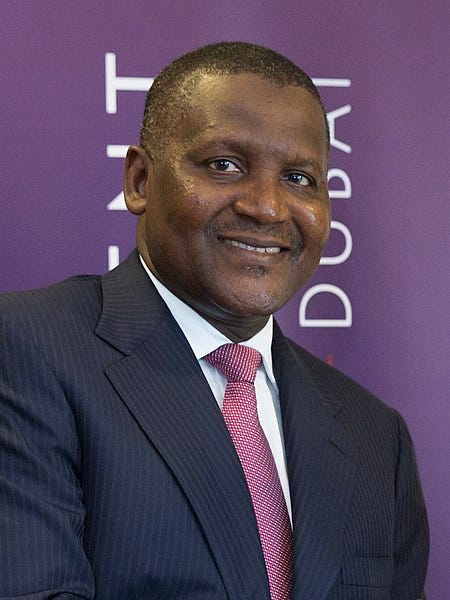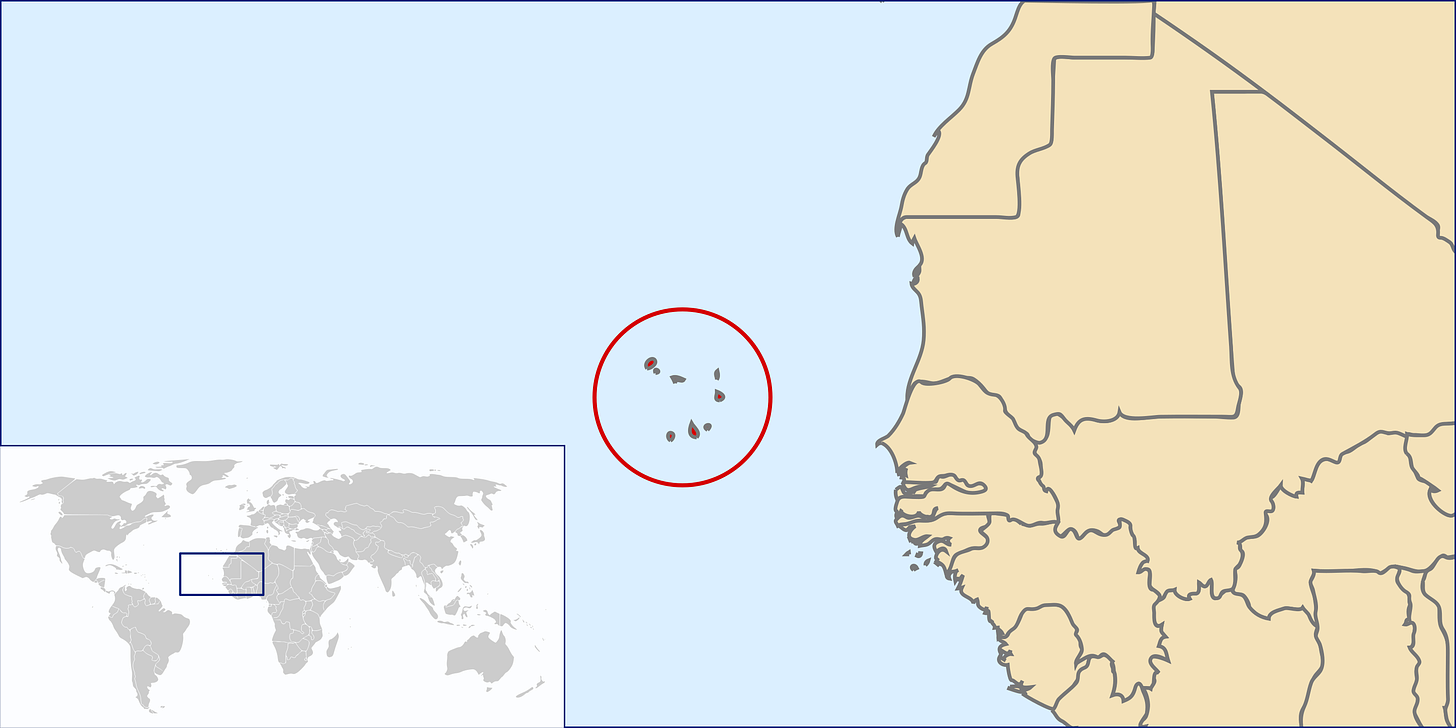🔅 Davos Goes African, Dangote's Big Move
Plus, Congo's Election Cash Mystery and Cape Verde's Malaria-Free Milestone
Photo of the Day

Brief & Bright: Africa's Top Five
Dangote's Mega Diesel Debut Is Accompanied By Office Controversy
Nigeria's oil scene just got a turbo boost, with Dangote's oil refinery, a colossal project that's been in the "Coming Soon" category for what feels like forever, finally starting churning out diesel and aviation fuel. When we say colossal, we mean it. This 650,000-barrel-per-day behemoth, built by Africa's very own billionaire Aliko Dangote, cost $20 billion. Nigeria, despite being the continent's top energy producer, has been importing most of its fuel. IBut with Dangote's refinery roaring to life on the outskirts of Lagos, Nigeria is not just looking to break up with fuel imports but also to start exporting to its neighbours. This could literally transform the oil trading game in the Atlantic Basin.
Yet, last week wasn't all smooth sailing for Dangote, who received some unexpected visitors at his Lagos office. Nigeria's anti-graft commission decided to drop by unannounced, and Dangote's company has since been like, "Why the embarrassment?" They're making it clear that they haven't been accused of any funny business and said it was a classic case of trying to make them look bad, insisting they're as clean as a whistle. This little visit wasn't just about Dangote; it's part of a bigger Sherlock Holmes-style investigation focusing on Godwin Emefiele, the ex-boss of Nigeria's central bank. So, while Dangote's crew might be feeling a bit hot under the collar, it's all part of a larger plot twist in the high-stakes world of Nigerian finance. The raid also appears designed to send a clear message: that nobody is untouchable under President Tinubu’s drive to reset the nation’s economy.
Congo's Election Cash Mystery: Millions Unaccounted For
Congo's national election commission, CENI, seems to have misplaced $400 million. An EU-funded civil society report is pointing fingers at CENI for not keeping tabs on a hefty chunk of change. This financial whodunit, uncovered by the Centre for Research on Public Finance and Local Development (CREFDL), reveals that while CENI was supposed to manage around $1.1 billion of public funds, they've only accounted for $711 million. On top of that, the report also points out the fact that, out of 54 public contracts, 45 were awarded through cosy mutual agreements, while only nine went through the usual public tender process. Finally, CENI apparently went on a shopping spree, buying 14 million more ballots and electoral cards than needed. Despite all these eyebrow-raising findings, CENI stands by the election's credibility, even as it invalidated votes for 82 legislative candidates over alleged fraud.
Davos Gets an African Twist

Pack your winter coats and sharpen your networking skills: The Africa Collective, in a team-up with the AfCFTA Secretariat, is set to spice up the World Economic Forum (15-19 January) with a buffet of activities focusing on African economic growth. Let's break it down: Monday kicks off with a luncheon that's not just about the food; it's a roundtable talk on using commodities to boost industrialization in Africa. Tuesday morning will see heads nodding over coffee at a roundtable discussing healthcare as an investment, not just a cost. And by Wednesday, it'll be all about attracting capital to Africa. The grand finale? A High-Level Closing Luncheon on Thursday diving into a discussion on scalable African solutions. In short, Africa Collective is briefly turning Davos into a hub for African economic dialogue. Established in 1971, the Davos Forum, officially known as the World Economic Forum, is an annual gathering of global political and business leaders in Davos, Switzerland, to address pressing world issues.
Cape Verde: The Malaria-Free Miracle
Cape Verde, the little island nation that could, just got a seal from the World Health Organization for being malaria-free. Not a single case of local transmission in three years. Let's put this in perspective: In 2022, malaria claimed 580,000 lives in Africa, 95% of the world's malaria deaths. Cape Verde, though, has been playing the long game. They've been beefing up their health systems, making sure everyone can get diagnosed and treated, and they've been as vigilant as a cat watching a laser pointer. Their surveillance officers have been on mosquito patrol like superheroes, and they've even made sure international jet-setters and migrants get free care and diagnostic services. Talk about rolling out the red carpet! Cape Verde's success is a major inspo for other small countries. They've shown that with the right strategy, you can send malaria packing. And considering that Cape Verde used to have malaria on all nine of its inhabited islands, this is no small feat. The WHO's Dr Achu points out that being an island helped Cape Verde map out the disease and control it better than in countries where people regularly cross borders. Still, this success is giving everyone hope that maybe, just maybe, we can dream of a world without malaria.
Banana21: Uganda's Potential Lifesaver, Still in Limbo

In Uganda, scientists have cooked up something special in their labs: Banana21, a genetically modified banana that could be a game-changer in the fight against vitamin A deficiency. This super banana, a mix of the vitamin-packed Asupina and the tastier, easier-to-grow varieties that have long existed in the country, is ready to make its debut. Vitamin A deficiency isn't a small issue; it's a global menace affecting 190 million kids and can lead to some pretty nasty stuff like blindness and immune system collapse. Uganda's particularly hard-hit, which makes this scientific breakthrough as exciting as finding an extra fry at the bottom of your takeout bag. Here's the plot twist: the Ugandan government is still mulling over whether to allow genetically modified foods to be sold. Despite legislation in 2017 giving the green light for biosafety, President Museveni hasn't put pen to paper to make it official. Even if Banana21 gets the green signal, will Ugandans actually go bananas for it? This isn't your everyday banana; it's got an orange glow thanks to all that vitamin A goodness. And let's face it, change can be scary, especially when it comes to messing with a beloved staple food.
Food for Thought
“A great leader is an ordinary person with extraordinary wisdom."
— Malawian Proverb





